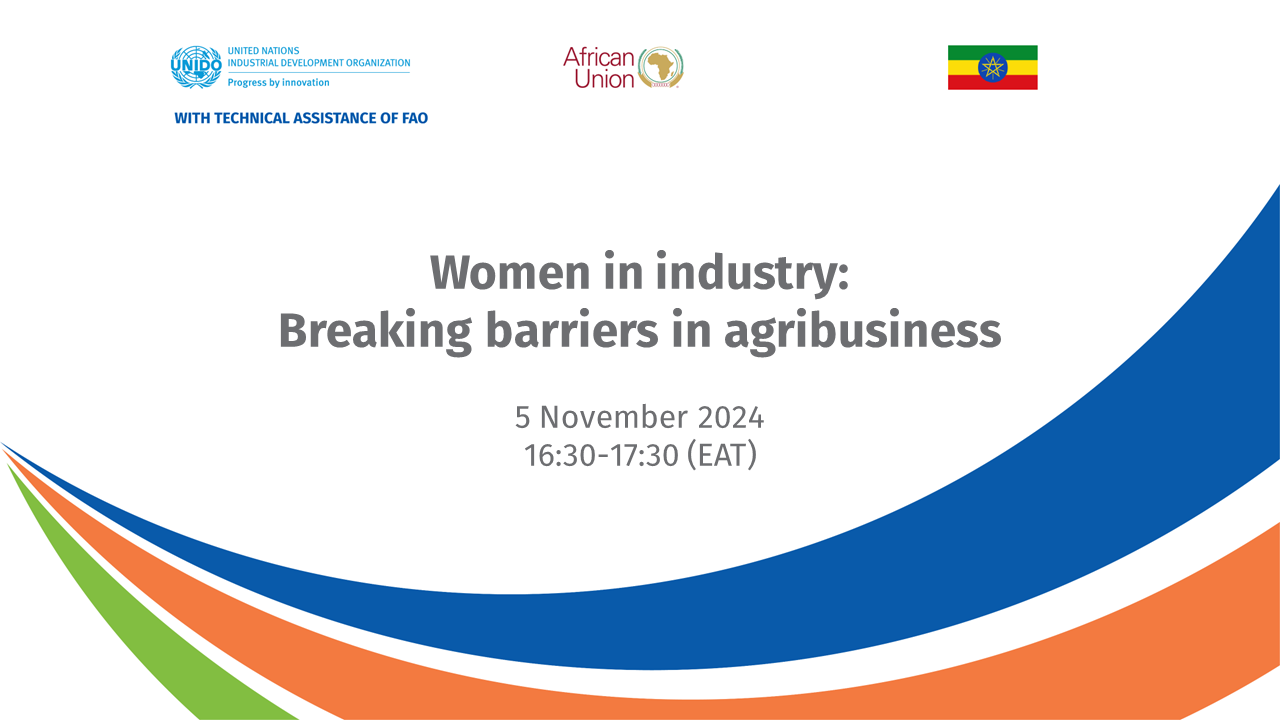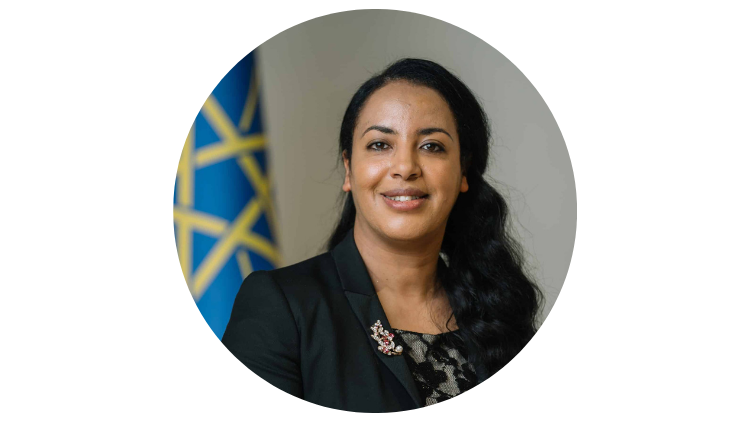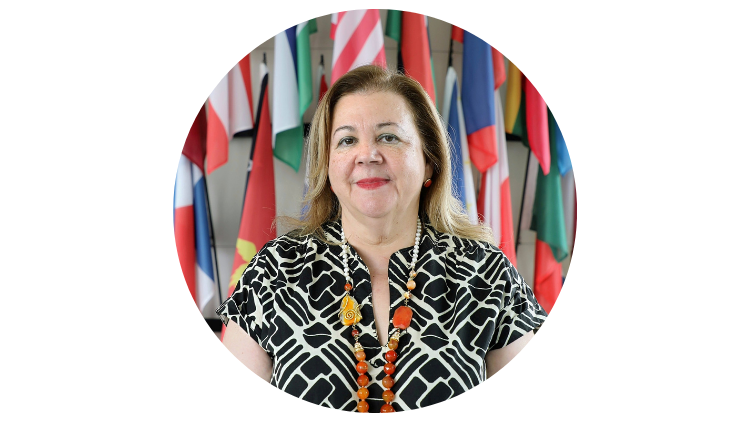


The issue:
It is time for a paradigm shift as new strategies and approaches are essential to empower women to become leaders and innovators within the global food system. Making up 43% of the global agricultural workforce, women are essential drivers in the global food systems- as smallholder producers, processors, service providers, and consumers. However, they face significant discrimination regarding land and livestock ownership, equal pay, participation in decision-making processes and structures and access to credit and financial services. Moreover, women are disproportionately affected by hunger, malnutrition, poverty and livelihood insecurity, especially in vulnerable communities across the world.
Despite the significant increase in entrepreneurial opportunities and innovation-centric approaches aimed at engaging women entrepreneurs and women-led entities in agri-business, barriers such as replicability, scalability, and market access are preventing scale up. Collaborative partnerships are needed to bridge the last mile in deploying gender-responsive, agri-entrepreneurial solutions, thereby placing gender equality and women's empowerment at the forefront of scaling industry innovations to effectively address food system challenges.
Objective:
This session aims to:
Highlight the importance of advancing equal representation of women in agri-business and in decision making structures and processes. It will also showcase the significant contributions of women as leaders and innovators.
Identify and address gender-based gaps and challenges that women face in agro-industries, and explore ways to enhance market access for women-led and women-owned micro, small, and medium-sized enterprises (MSMEs).
Empower women entrepreneurs by providing a platform to share best practices and strategies, particularly focusing on women-owned MSMEs. Additionally, the discussion will emphasize the role of women in promoting sustainable industrial practices and environmental stewardship.
Ultimately, this event aligns with the broader mission of UNIDO and its partners to foster an inclusive and sustainable industrial landscape that benefits everyone and leaves no one behind. The event also aligns with the system-wide gender equality acceleration plan launched by the United Nations Secretary-General in March 2024, recognizing the centrality of gender responsiveness and inclusion in industry development. By addressing gender disparities in agro-industries globally, UNIDO aims to empower women and contribute to the achievement of inclusive and sustainable industrial development, and the Sustainable Development Goals, particularly those related to gender equality (SDG 5), industry, innovation, and infrastructure (SDG 9), and partnerships (SDG 17).
Key guiding questions:
What are the main challenges encountered by women and women entrepreneurs in agri-business?
What effective strategies, policies, or institutions are needed to overcome these challenges and enhance the role of women as leaders and innovators in the agri-food system?
How can collaborative partnerships among various stakeholders support the scaling and impact of women-led and -owned agri-business solutions?
What are some good practices for making the agri-food industry more accessible and appealing to women entrepreneurs?
How can women in agri-business drive sustainable practices and environmental stewardship, and how can these contributions be scaled?
Expected outcomes:
Identify and begin to address key challenges that limit entrepreneurial opportunities for women and women-led MSMEs in the agri-food sector and propose actionable solutions.
Highlight strategies to increase market access for women entrepreneurs and women-led MSMEs in the agri-food sector.
Facilitate the creation of collaborative partnerships among stakeholders to pilot and scale innovative solutions for women’s empowerment in the agri-food sector.
Session format and structure:
This event will feature a high-level opening followed by an interactive panel discussion focused on Q&A from the audience. The opening will set the stage by highlighting the importance of women's leadership and innovation in agri-business. The panel discussion will then bring together voices from the private sector, innovation accelerators, women entrepreneurs, and producer cooperatives.
Opening remarks

H.E. Ms. Ergoge Tesfaye, Minister of Women and Social Affairs, Ethiopia
Moderator

Ms. Aurelia Calabro, UNIDO
Aurelia Patrizia Calabrò holds a Master’s degree in Political Science and International Economy. Fluent in six languages, with basic knowledge of Amharic, she began her career at the UNIDO in 1989 as JPO at the Agro-Industries Development Department and during over 35 years of service, has specialized in agro-value chains development. As Chief of the Agro-Industries Technology Division, she was responsible for the technology aspects of agro-based industries in textile, leather, wood and agricultural tools for value addition and job creation. Emphasis was placed on the design and implementation of programs to support inclusive & sustainable development needs of the agri-businesses and related industries. Ms. Calabrò has worked in over 30 countries, particularly in Sub-Saharan Africa, and has served as Deputy Director at the UNIDO Regional Hub in Ethiopia, UNIDO Representative to the AU and UNECA, and as UNIDO Director of the Division of Policymaking Organs. In July 2024, she was appointed Director of the Division for Gender Equality and Women's Empowerment.
Panelists

Ms. Aisha Raheem, CEO Farmz2u, Nigeria
Aisha Raheem is the CEO of Farmz2U, a supply chain company transforming African agricultural value chains through data-driven strategic sourcing. As a Skoll Scholar at the University of Oxford, Aisha seeks to combine her deep expertise in strategy and operations to unlock growth opportunities in emerging economies through development finance. Her leadership has earned Farmz2U significant recognition like the Africa Prize Alumni Medal from HRH The Princess Royal of England and has been spotlighted by media like CNN's Innovate Africa.

Ms. Leyla Traoré, Head of Representation for Ethiopia and the African Union, EIB
Leyla Traoré is the head of the European Investment Bank (EIB) Representation to Ethiopia and the African Union. With two decades of banking experience, she’s held several leadership roles at EIB, leading groundbreaking work on development finance in emerging markets and developing countries. She also served as Chief Quantitative Risk Officer at the African Development Bank. A French-State Engineer in mathematics with certifications in finance and sustainability, Ms. Traoré is passionate about supporting inclusive economic development and sustainable finance initiatives.

Mr. Marco Kruse, Program and Partnership Manager, HRNS
Marco Kruse is a program manager at Hanns R. Neumann Stiftung (HRNS), an organization dedicated to empowering smallholder farmers in coffee-producing regions. He did his Ph.D. in agricultural economics, focusing on women’s empowerment and nutrition, highlighting their essential roles in building resilient communities. At HRNS, he contributes to innovative programs that enhance food security and promote sustainable agricultural practices, with a strong emphasis on empowering women and youth. The organization supports smallholder families by providing them with the tools and knowledge needed to improve their livelihoods, protect the environment, and drive social and economic development.

Mr. Samuel Gbaydee Doe, Resident Representative, UNDP Ethiopia